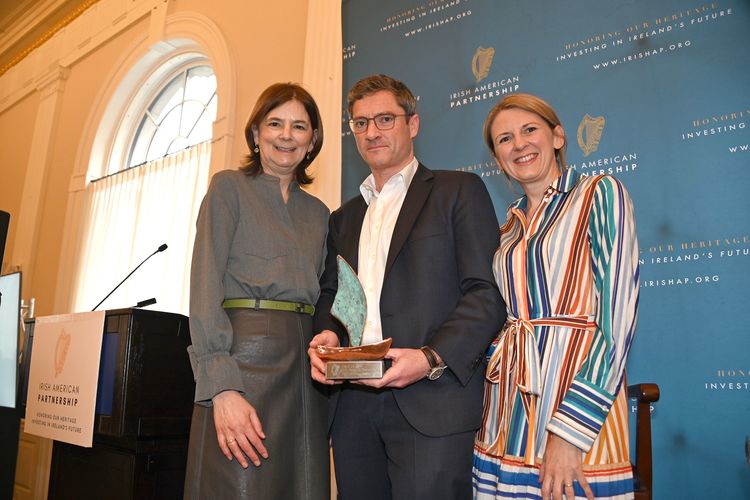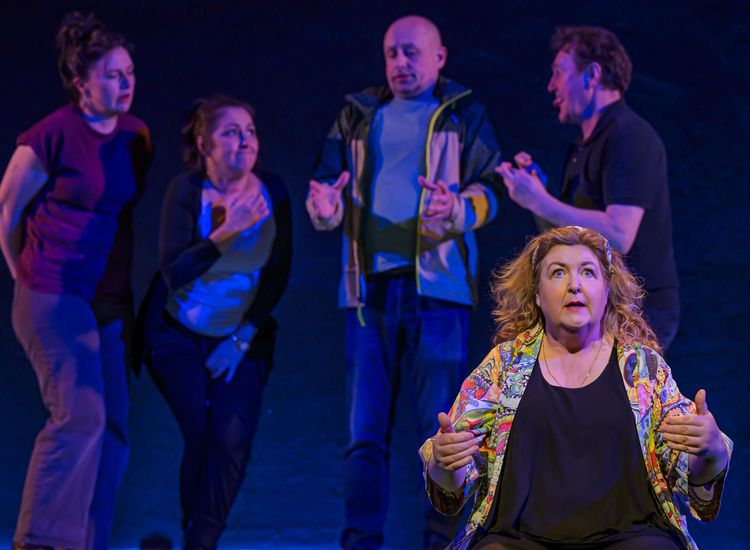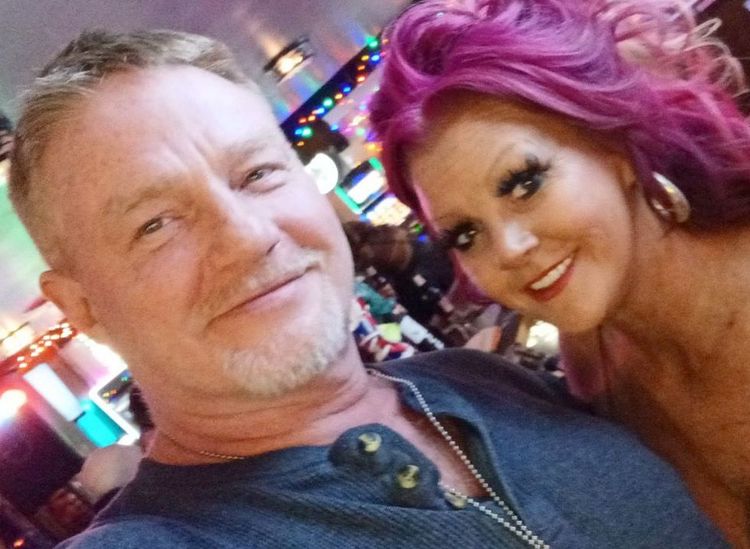[caption id="attachment_71302" align="aligncenter" width="600" caption="Mary Higgins Clark charmed her listeners at Glucksman Ireland House last Saturday."]
The third annual "Who do we think we are?" day-long program, presented and organized by Glucksman Ireland House at NYU, was held last Saturday.
This year the theme was "Economics Family-Style, exploring the Irish and Irish-American family." Throughout the day, prominent writers, artists, and scholars explored and discussed how finances influenced family decisions regarding emigration, marriage, and property, and how these in turn affected the wider community.
The first session was entitled "Sharing Communities: Family Life across the Atlantic" and was presented by Miriam Nyhan and Linda Dowling Almeida, both of the Glucksman Ireland House Oral History Project.
Evocative audio clips were shared, which the audience could all relate to. Listening to real people telling real stories hit a note with everyone and there were many scuffles in bags for tissues as memories came flooding back. Poverty was a major theme running throughout, but with the caveat, "we were poor but we didn't know we were poor." Other interesting topics discussed were the divide between rural and urban living, the family farm, the inheritance, mothers and daughter in laws and the ubiquitous American parcel.
The second session was the keynote address given by Mary Higgins Clark who is known worldwide for her suspense novels, having written 42 to date, all of which are best sellers and all of which are still in print. As she spoke at the conference, the New York Times were printing her name at the top of the current best seller list with her new novel "The Lost Years."
Despite her fame and fortune, Higgins Clark, the grand marshal for the 250th New York St. Patrick's Day Parade, remains grounded and her Irish upbringing shines through constantly.
A central theme was faith and optimism and triumph over tragedy, all instilled in her by her Irish parents. She talked about the human condition, the effect of poverty and death, living as she did through the Great Depression. She recalled wonderful memories of growing up in the beautiful "countryside", as it was then, of the beloved Bronx of her childhood.
She ended her eloquent and inspiring speech with the quote "unless you are a storyteller, you are not a writer."
The third session was entitled "Wealth, Poverty and Emigration", presented by Prof. Brendan Mac Suibhne, Centenary College followed by Prof. Kerby Miller, of the University of Missouri.
Brendan talked about
"The End of Outrage; or,
The Informer and the
Historian: The Great Famine and Popular Politics in County Donegal", He discussed the impact of the Great Famine on his native townland in Donegal.
Kerby Miller explored the complexities and perplexities that historians experience, using the example of Edmund Ronayne, 1832-1911, an Irish Catholic who lost both his parents during the Famine, received a Catholic education in Ireland, emigrated to the U.S. where he became an avid Freemason, then turned to Presbyterianism and ran various anti-Freemason rallies, ended up a poor and impoverished man and when he died, was recognized by others as a Fenian.
The Fourth session was entitled "Financing Futures: Sibling support and maternal models. Prof. Maureen Murphy of Hofstra University discussed how chain migration to the U.S. was financed by women, including nuns, while Prof. Janet Nolan of Loyola University, Chicago, looked at upward mobility via mothers to daughters in America.
The final session was presented by Bruce Morrison, former congressman from Connecticut, immigration lawyer, and lobbyist. Bruce addressed the issue of modern day immigration and how to ensure that Irish people can continue to come to the U.S. and how we can continue to renew and recover the Irish traditions and links here.
The closing remarks after what was a full and satisfying day were made by Ambassador Noel Kilkenny, Consul General of Ireland in New York.










